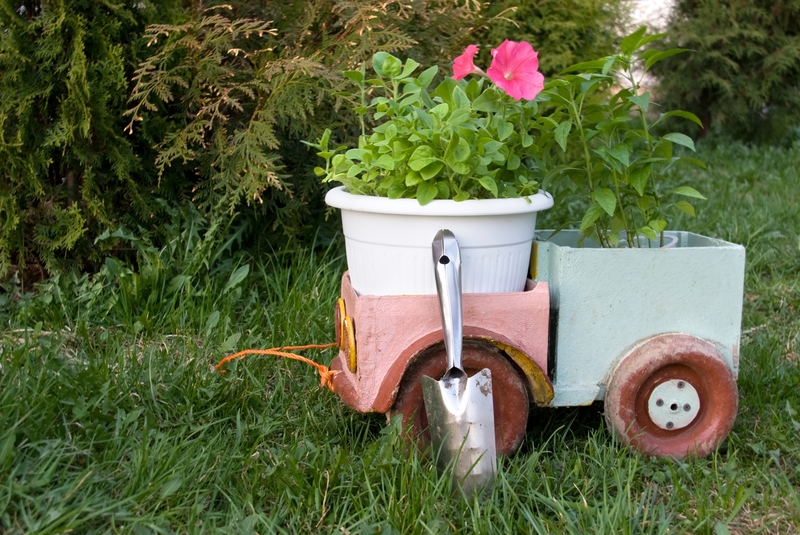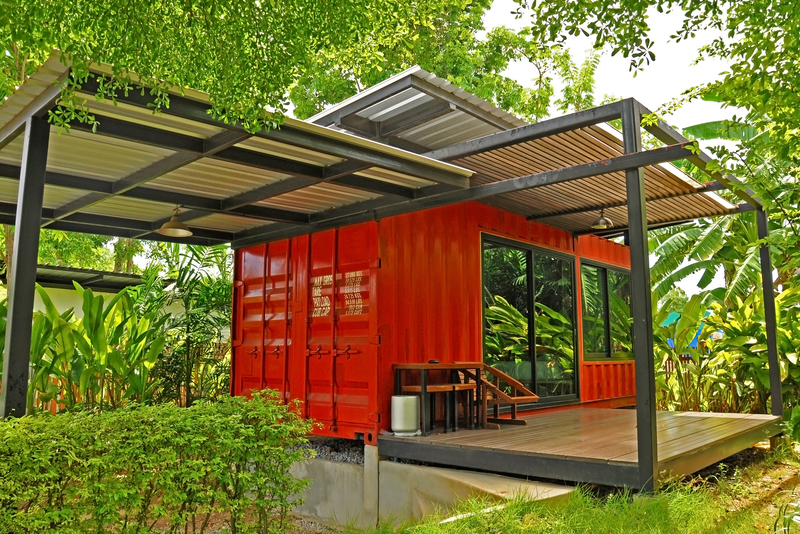Using Everyday Items to Teach Kids About Recycling
In an era where environmental consciousness is more important than ever, teaching kids about recycling is an essential part of raising responsible future citizens. But this crucial education does not need to be limited to classrooms or complicated concepts. You can transform your home into a dynamic learning center using simple, household items! In this comprehensive guide, you'll discover effective, fun, and hands-on ways to use everyday goods to help kids learn about recycling and sustainability.

Why Teaching Kids About Recycling with Everyday Items Matters
Children are especially adept at learning through tangible, real-world experiences. When we use common objects to demonstrate recycling principles, the lessons become more relatable, memorable, and impactful. Not only does this foster eco-friendly habits, but it also nurtures creativity, critical thinking, and a deeper understanding of how their actions affect the planet.
- Engagement: Hands-on activities capture children's attention.
- Accessibility: Everyday items make learning possible anywhere, anytime.
- Real-World Application: Kids learn what and how to recycle at home or school.
- Encourages Habit Formation: Early exposure leads to lifelong eco-friendly habits.
Getting Started: Gather Your Everyday Recycling Items
Before diving into lessons, collect a wide variety of common recyclables and non-recyclables from your own home. Involve your children in this process--it's a great way to begin discussions around waste, packaging, and environmentally responsible choices.
Sample List of Household Items for Recycling Lessons
- Paper: Newspaper, magazines, office paper, cardboard boxes.
- Plastics: Beverage bottles, containers, caps, shopping bags.
- Metal: Aluminum cans, tin foil, food tins.
- Glass: Jars, bottles (make sure they're safe for handling).
- Non-recyclables: Styrofoam, certain food wrappers, ceramics, greasy pizza boxes.
_Look for items with recycling symbols, and items without them. This will help kids identify recyclable versus non-recyclable items, an important first step toward mindful waste management._
Fun and Interactive Activities to Teach Kids About Recycling
1. The Recycling Sorting Game
This classic activity makes learning about sorting waste both _fun_ and informative.
- Label several bins or boxes with "Paper," "Plastic," "Metal," "Glass," and "Trash."
- Mix up various household items and ask your child to place each one into the correct bin.
- Discuss why some items are or aren't recyclable, and what happens to them after disposal.
_Challenge older kids by adding items that are only recyclable under specific guidelines (e.g., clean pizza boxes versus greasy ones)._
2. Upcycling Creations
Use _imagination_ to transform junk into treasures! Upcycling, or creatively reusing items, helps children see value in what might otherwise be thrown away.
- Turn plastic bottles into plant pots or bird feeders.
- Make piggy banks from tin cans or jars.
- Use scraps of paper for homemade greeting cards.
- Create art collages from old magazines.
Besides building an appreciation for materials, these projects improve motor skills and foster creative expression.
3. Recycling Relay Race
For a more energetic lesson, set up a recycling relay! This works well for small groups or family gatherings.
- Divide children into teams.
- Place mixed items at a starting point and correct recycling bins at the other end.
- Kids race to collect one item at a time and sort it correctly.
- Team with the most correctly sorted items wins!
_Learning is more memorable when it's in motion!_
4. The "Can It Be Recycled?" Challenge
Show your children different household packages or containers. Let them guess whether each item is recyclable, compostable, or destined for landfill. Then, look up the answer together using local recycling guidelines. This activity highlights that recycling rules can differ by location--and encourages curiosity to learn more.
Everyday Recycling Conversations: Building Sustainable Habits
Beyond activities, everyday conversations play a huge role in teaching kids about recycling at home. Set an example with your own actions:
- Talk about what you're recycling and why.
- Remind your family to rinse containers before placing them in the recycling.
- Point out unnecessary packaging at the store and discuss alternatives.
- Discuss why reducing waste is even better than recycling.
_Use positive reinforcement: compliment your kids whenever they make a good recycling choice!_
Extending Learning: Real-Life Recycling Exploration
Take recycling education outside the home by exploring your community's recycling process. Many municipal recycling centers offer tours or have online resources to show what happens after pick-up. Encourage questions like:
- Where does our recycling go?
- What kinds of materials are easiest to recycle?
- What happens if we recycle the wrong item?
Such real-life exposure cements the concepts learned at home and shows kids why their actions matter.
Creative Ways to Reinforce Recycling Lessons Using Everyday Items
Storytelling with Recycled Materials
Have children write or act out short stories starring household objects learning to find a new purpose. For example, a plastic bottle's journey from the store to a recycling facility and transformation into fleece jacket fabric! This helps kids _empathize_ with objects and understand circular economies.
Tracking Family Waste
For one week, involve your children in tallying up what the family throws away versus what is recycled, composted, or reused. Discuss patterns and brainstorm ways to improve. Make a chart, and celebrate progress!
Environmental Art Projects
Create murals or 3D art from collected recyclables. This can open up discussions on environmental issues and the impact of litter. Many schools use such projects to decorate classrooms and spread recycling awareness.
Learning About Recycling Symbols and Local Guidelines
A crucial yet often overlooked part of recycling education for kids is making sense of the symbols and instructions on packages. Use grocery packaging or product labels to teach kids about:
- Recycling symbols (numbered triangles for plastics, chasing arrows, etc.).
- What each symbol means, and which plastics are recyclable in your area.
- Special instructions, such as removing caps or rinsing containers.
Encourage your child to act as a "recycling detective" every time you unpack groceries, sorting items and explaining their findings.
The Science of Recycling: Simple Experiments with Household Items
Bring science into your lessons with easy experiments using _recyclable and compostable items_. For example:
- Bury a banana peel, a plastic wrapper, and a paper scrap in soil. Observe which breaks down over time!
- Soak similar items in water to discuss how materials degrade or persist in nature.
- Use a magnet to pick up steel food cans--teaching about recycling metals.
_These experiments allow kids to see tangible results, deepening their understanding of why recycling matters._
Common Questions Kids Ask About Recycling--And How to Answer
- "Why can't everything be recycled?"
Not all materials can be reused efficiently, and some items contain mixtures of materials that can't be separated easily. - "What happens if I throw the wrong thing in the recycling?"
It can contaminate other items and sometimes means the whole batch has to be sent to landfill instead of being recycled. - "Does recycling really help the environment?"
Yes, recycling saves resources, reduces pollution, and uses less energy compared to making new products from raw materials.
_Share these answers patiently, showing pictures and videos to reinforce understanding whenever possible._

Encouraging Ongoing Curiosity and Responsibility
The journey of raising recycling-aware kids doesn't stop with a few projects. Make recycling part of your family's routine:
- Rotate the responsibility for taking out recyclables each week.
- Set household recycling goals and celebrate achievements.
- Volunteer for neighborhood clean-ups or school recycling drives together.
- Stay updated on local recycling guidelines--invite your child to help with research.
By weaving small but consistent recycling practices into daily life, you lay the groundwork for long-lasting eco-consciousness.
Conclusion: Shaping Eco-Friendly Citizens, One Recycled Item at a Time
Teaching your kids about recycling using everyday items doesn't require specialized tools or expensive kits. The most impactful lessons come from simple actions, open conversations, and creative reuse of what you have at hand. By making recycling fun, relevant, and hands-on, you turn waste into an opportunity for learning, responsibility, and positive change. Start today--your planet and your children's future will thank you!
Are you ready to spark a life-long love for the environment in your household? Begin with your recycling bin, and let everyday items be your family's guide to a greener world!